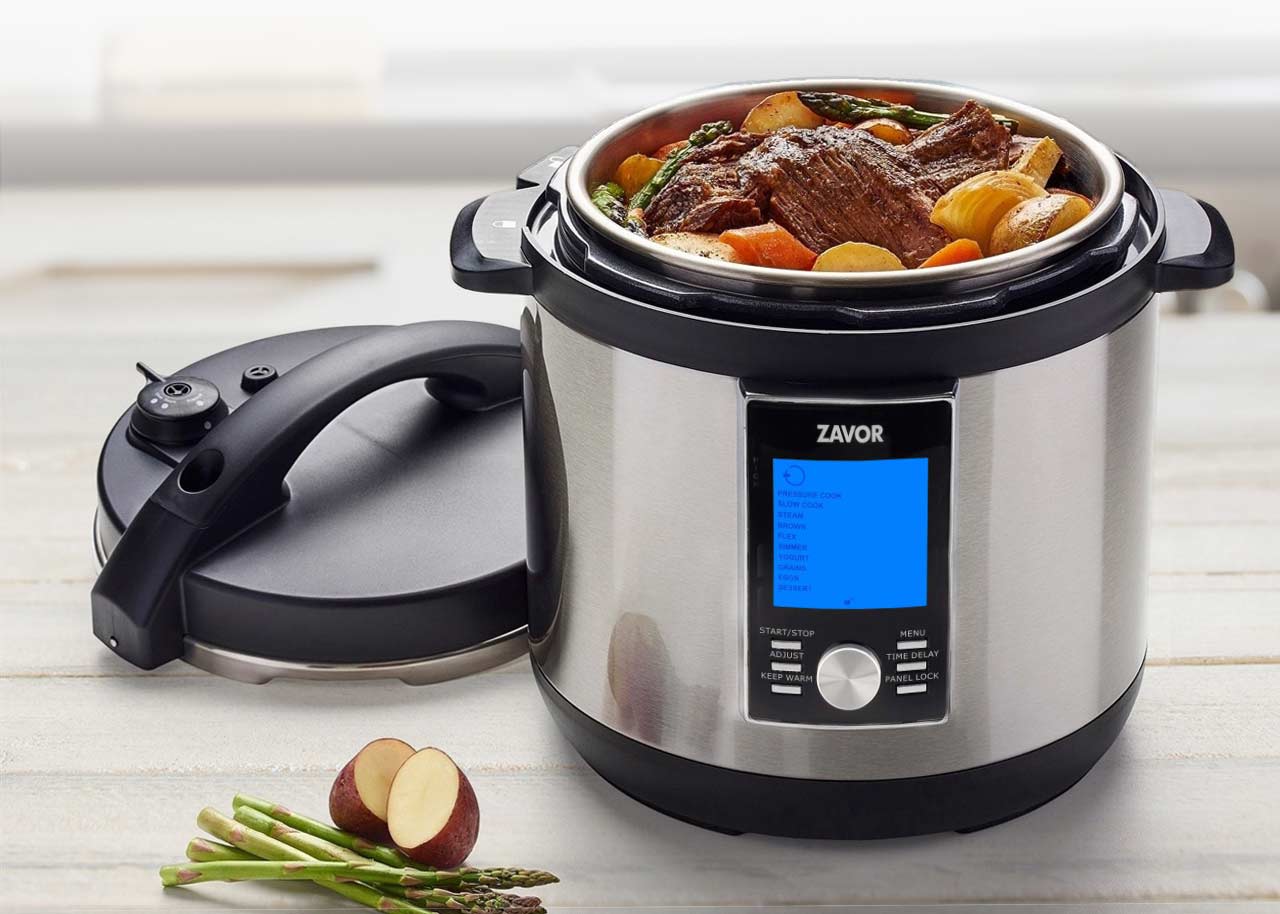Pressure cookers have a scary reputation, but they're not as bad as you might think. For one thing, it's mostly older models of pressure cookers that have caused accidents. They can explode, in a sense, but not as violently as you might fear. The pressure inside a cooker doesn't go above about two atmospheres (roughly the pressure found in a soda can). Those levels can be dangerous, but they're generally not high enough to cause the metal to violently rupture. Most accidents result in burns, not metal flying across the kitchen.
If you learn the basics of a pressure cooker, then they can be your friend, not something to fear. Using any electronic requires caution, but the pressure cooker has a bad rap, and most modern cookers aren't like they were just ten years ago. Safety is a serious requirement for most modern pressure cookers.
So what is a pressure cooker anyway?
A pressure cooker is a tightly sealed cooking pot that cooks food with extremely high pressure. These machines have been around for a long time, and gained popularity after WWII. However, when the pressure was getting a little too hot and high, lids would pop off and burns happened. Again, those were the older models, but unfortunately they gave pressure cookers a bad rap and their popularity dwindled. Today, pressure cookers are making a comeback. Heightened flavor and shorter cooking time - what more could you want?
How does a pressure cooker work?
When you boil water in a pot, it turns to steam, and when it gets trapped in a pot, the steam starts to build pressure. This high pressure steam raises the boiling point of the water in the pot. The steam’s pressure makes it so the boiling point can get as high as 250°F, which can't happen when cooking in a regular pot of water. This higher heat helps the food cook faster. The cooker also raises the pressure, which forces moisture into the food. Not only can it cook fast, but the food is still packed with flavor and juiciness. It helps tough meat become tender very quickly, without drying it our or losing its flavor.
What can you cook in a pressure cooker?
Almost anything! Most people use pressure cookers to cook foods that normally take a long time to cook. Tough cuts of meat can be cooked quickly and still be moist and delicious. Rice can be cooked in minutes. Soups will be hot, hot, hot in no time. You can use a pressure cooker to brown, boil, steam, poach, braise, stew, roast, and even bake food! You can have a meal for your family in minutes, and there's not need to fear!
What's the catch?
There is none! Pressure cookers are great through and through. It's not even that hard to learn how to use one. You can't pop off the lid and taste test it, but with how flavorful your food is sure to be there's no need to. Pressure cookers are also highly efficient. They use less energy than most cooking appliances by how quickly things cook. So you can have delicious food and a lower electric bill!
What pressure cooker should I use?
We highly recommend Zavor pressure cookers. Zavor's unique products offer a simple and healthy approach to cooking that allows users to create a delicious array of meals that are sure to bring family and friends together. From the novice home cook to the expert chef, all walks of life will benefit from Zavor’s versatile collection of trustworthy kitchen tools.
Each of these cookers has its own unique characteristics, all of which are sure to make cooking much easier for you. You have a selection of sizes as well, so there's an option if you're cooking for yourself, your friends, family, church, or whole neighborhood!
We hope you enjoy cooking with your new pressure cooker. Follow us on Instagram (@jlhuffordonline) and show us what concoctions you've created!



